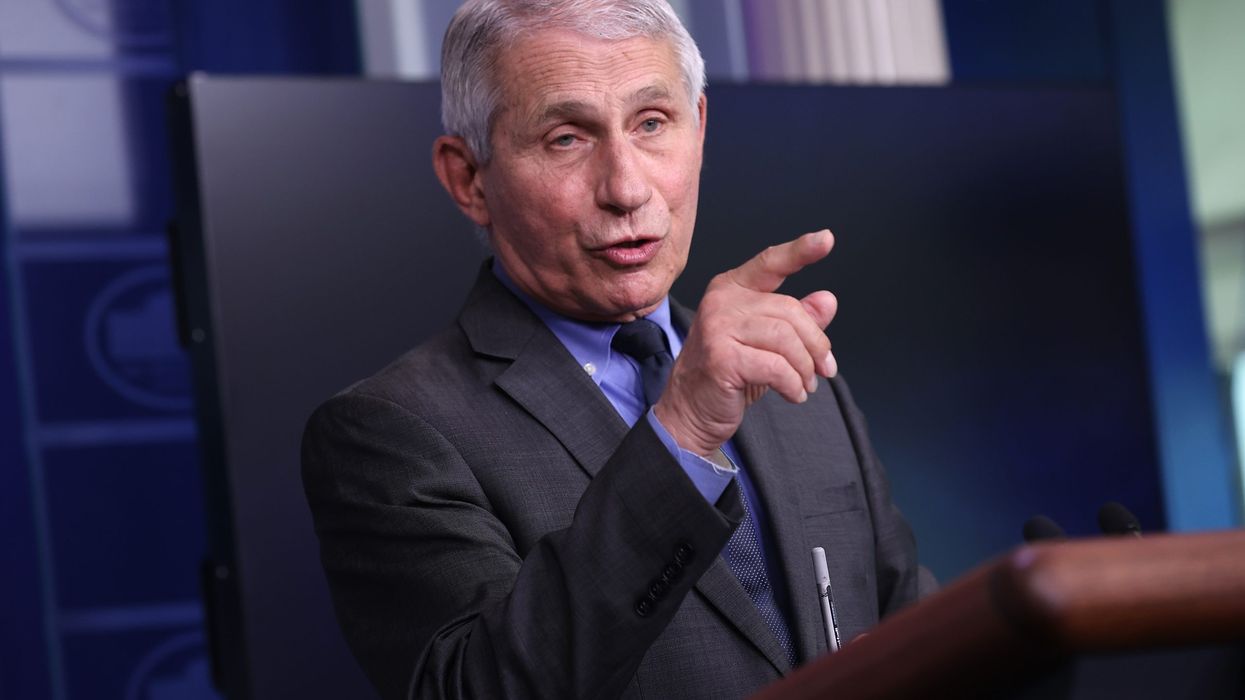INDIA made the "incorrect assumption" that it was finished with the Covid-19 pandemic and opened up prematurely that has left the country in such "dire straits", America's top infectious disease expert Dr Anthony Fauci told senators.
India has been severely affected by the unprecedented second wave of the coronavirus and hospitals in several states have been overwhelmed with shortage of vaccines, oxygen, medical equipment, drugs and beds.
"The reason that India is in such dire straits now is that they had an original surge and made the incorrect assumption that they were finished with it, and what happened, they opened up prematurely and having a surge right now that we're all very well aware of is extremely devastating," Fauci told the US Senate Health, Education, Labour and Pensions Committee during a hearing on Tuesday (11) on the Covid-19 Response.
Dr Fauci, who is the Director of the US National Institute of Allergy and Infectious Diseases (NIAID), is also the chief medical advisor to president Joe Biden.
Chairing the hearing, senator Patty Murray said that the surge of Covid-19 that is devastating India is a painful reminder really that the US can't end the pandemic here until it ends it everywhere.
"I'm glad the Biden administration is leading that global fight by rejoining the World Health Organization and funding global vaccine efforts and committing to donate 60 million AstraZeneca vaccines to other countries by July 4," she said.
"India's outbreak underscores the need for a robust public health infrastructure in the US to respond appropriately to this pandemic and future outbreaks, as well," senator Murray said as she asked Fauci what can the US learn from India's outbreak.
"One of the important things is don't ever underestimate the situation," Fauci said as he referred to India's incorrect assumption and premature opening up.
"The second thing is preparedness with regard to public health, preparedness, which we, as a lesson learned for future pandemics, have to realise that we need to continue to build up our local public health infrastructure, which over the last decades we have let actually in many respects go into disarray, likely because of our successes in controlling so many diseases," Fauci said.
The other lesson that is learned is that this is a global pandemic that requires a global response, and one has to pay attention to the "responsibility that we have, not only for our own country but to join with other countries to make sure that we have the access to interventions, particularly vaccines throughout the world," he said.
"Because if it continues to have dynamics of virus anywhere in the world, we have a threat here in the United States, particularly with variants, and you know there's one variant in India that is also a new variant. So those are just a few of the lessons that I believe we can take from what's going on in India," the 80-year-old leading physician and immunologist said.
India saw a record rise in Covid-19 deaths with 4,205 fresh fatalities taking the country's death toll to 2,54,197, while 3,48,421 new coronavirus infections were reported, according to the Health Ministry data updated on Wednesday (12).
The total tally of Covid-19 cases in India now stands at 2,33,40,938.
Senator Murray said that the deadly outbreak in India is a heartbreaking reminder of what can happen when this virus spreads unchecked, when it mutates into more contagious, more deadly strains and when it overwhelms healthcare systems.
"It's a reminder this pandemic won't fully be over for our country until it is over for the world, which is why I'm glad the Biden administration is sending medical support to India, sharing some of our excess doses globally and even considering other steps to remove barriers to vaccines for countries that need them, including a targeted waiver of Covid-19 patent protections," she said.
Meanwhile, according to data from the Centers for Disease Control and Prevention (CDC), nearly 58 per cent of US adults - and nearly 46 per cent of the country's total population - have received at least one Covid-19 vaccine dose. More than 34 per cent of the US population is fully vaccinated, CDC data shows.
Fauci has previously estimated that about 70-85 per cent of people need to be immune for the country to reach a "total blanket of protection," he told CNN late last month.
"However, even before you get to that, as you get more and more people vaccinated, you will reach a point... where you'll start to see the number of cases going down dramatically," Fauci said at that time.




